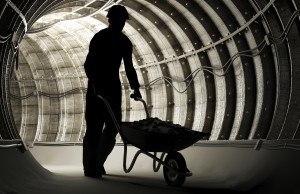The Danger of Hazardous Gases
Most businesses use gas as fuel within the workplace (including natural gas, methane and Liquefied Petroleum Gas – or LPG) for heating the premises and water, cooking and processing products. It should be a given that gas – any gas - can be hazardous and as such should be handled with extreme care and caution. Hopefully, that is always the case...
The Risks Involved
If gas doesn’t burn properly, or is used in an unventilated area, it produces carbon monoxide (CO) – a clear, odourless gas, which, if inhaled reduces the blood’s ability to distribute oxygen, thus starving the body of oxygen and gradually poisoning it. The symptoms of this include drowsiness, headaches, nausea and chest and stomach pains – but these are fairly general and ambiguous and often ignored or mistaken for less serious ailments, so ultimately carbon monoxide poisoning can – and tragically does - kill. There is an increased risk of carbon monoxide poisoning if there’s inadequate ventilation; if the flue or chimney is obstructed so cannot vent the system; if appliances aren’t correctly and regularly maintained or if installed or serviced by an inexperienced or unregulated engineer.
Gas is also extremely highly combustible. Ensuring that gas appliances are correctly fitted and regularly maintained by a qualified engineer means that gas will be burned safely and in a controlled way. Faulty or incorrectly fitted and maintained appliances or pipework can be prone to leaks. If such a leak is accidentally ignited – which can be easily done by lighting a scented candle, say, or even the ignition on a cooker – it could cause a fire or even an explosion. A recent gas blast in Heywood, Manchester blew off the roof of a building, damaged neighbouring buildings and left a man with severe burns.
If used in confined spaces, it can carries further dangers including lack of oxygen, poisonous gas, fume and vapour, hot working conditions and increased risk of fire and explosions. It can also exacerbate and speed up the effects of CO. Specific confined space training should be mandatory.
Your Responsibilities
General Health and Safety Legislation mean that as well as a moral obligation, you are responsible for the wellbeing of your employees. If found to be negligent, the penalties are justifiably harsh, so whenever a gas appliance is installed or maintained at work the person carrying out the work must be certified as competent to work with gas and therefore has to be registered with the Gas Safe Register. Appliances – new or existing must be easily accessible for ventilation, use, inspection and maintenance. Knowing your responsibilities, and preparing as best you can for any problems will leave you well equipped to cope should the worst happen.
